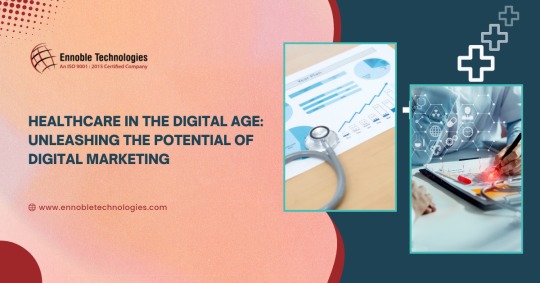#Digital Health Industry
Text
Digital Health Industry Projected To Witness Swift Growth In Future
Digital Health Industry | Forecast 2030
Digital Health Industry Data Book - Tele-Healthcare, mHealth, Healthcare Analytics and Digital Health System Market Size, Share, Trends Analysis, And Segment Forecasts, 2022 - 2030
Global digital health systems market size was valued at USD 31.4 billion in 2022 is projected to grow at a compound annual growth rate (CAGR) of 6.1% from 2023 to 2030.
Access the Global Digital Health Industry Data Book, 2022 to 2030, compiled with details like market sizing information & forecasts, trade data, pricing intelligence, competitive benchmarking analyses, macro-environmental analyses, and regulatory & technological framework studies
mHealth Market Growth & Trends
The global mHealth market size is expected to reach USD 130.6 billion by 2030 and is expected to expand at a CAGR of 10.8% over the forecast period, according to a new report by Grand View Research, Inc. Increasing adoption of mHealth apps and technologies by physicians and patients and rise in penetration of internet and smartphone connectivity are among the major factors expected to drive the growth of the market. Besides, increasing government initiatives towards the digitalization of healthcare services are also anticipated to boost the adoption of mobile health platforms.
Based on component, mHealth apps dominated the market and accounted for revenue share of 75.4% in 2021. This high share is attributable to constantly developing startup ecosystems across the globe and increasing investments by key players to develop new health-based apps. In addition, benefits provided by these apps in maintaining health and lifestyle and managing health condition are some of the other factors boosting the growth of the segment.
Based on services, the monitoring services segment dominated the market with a revenue share of 61.5% in 2022. Monitoring services mainly involve the observation of health conditions, diseases, and other complicated medical parameters for a defined time. The rising prevalence of chronic diseases and increasing preference for remote monitoring services in post-acute care are some of the factors contributing to the growth of this segment. In addition, increasing investments by the key players in mobile health apps for patient monitoring is also expected to propel the segment growth over the years.
Healthcare Analytics Market Growth & Trends
The global healthcare analytics market size is expected to reach USD 167.0 billion by 2030, expanding at a CAGR of 21.4% during the forecast period, according to a new report by Grand View Research Inc. The increase in capital investments by the healthcare industry in the IT sector for better management and cost-effective patient care are key growth factors for the healthcare analytics market.
Descriptive analytics holds the biggest revenue share, its use in studying historical data has been successfully and widely adopted during the pandemic for studies on patient populations, the current method of analysis has been studying historical data to devise actionable insights for professionals to act on. Predictive analytics accounted for the fastest growth owing to the ability to provide future prospects for growth and for delivering better results.
By component, the services component had the largest revenue share in 2022, owing to the majority of healthcare institutes outsourcing their data analytics to third-party vendors. A large number of data analytics companies have been collaborating with the institutions to deliver meaningful insights for better patient care and for maximizing their profits by cost-cutting. Better patient monitoring, and care are key factors for the growth of this component.
The on-premises delivery model holds the largest revenue share in the delivery mode segment. This has been due to the ease of access of data being on the site, i.e., at hospitals, etc. this has resulted in better patient monitoring, better management of records, etc., small institutions are manageable for on-premises delivery mode, another option for data storage is cloud-based. Cloud-based deployment has been the emerging delivery mode due to the fact that it provides a larger space virtually to store data for a multitude of patients. This is cost-effective and is a commercially more viable option for industries.
Order your copy of the Free Sample of “Digital Health Industry Data Book - Tele-Healthcare, mHealth, Healthcare Analytics and Digital Health System Market Size, Share, Trends Analysis, And Segment Forecasts, 2022 - 2030” Data Book, published by Grand View Research
Healthcare Analytics Market Growth & Trends
The global healthcare analytics market size is expected to reach USD 167.0 billion by 2030, expanding at a CAGR of 21.4% during the forecast period, according to a new report by Grand View Research Inc. The increase in capital investments by the healthcare industry in the IT sector for better management and cost-effective patient care are key growth factors for the healthcare analytics market.
Descriptive analytics holds the biggest revenue share, its use in studying historical data has been successfully and widely adopted during the pandemic for studies on patient populations, the current method of analysis has been studying historical data to devise actionable insights for professionals to act on. Predictive analytics accounted for the fastest growth owing to the ability to provide future prospects for growth and for delivering better results.
By component, the services component had the largest revenue share in 2022, owing to the majority of healthcare institutes outsourcing their data analytics to third-party vendors. A large number of data analytics companies have been collaborating with the institutions to deliver meaningful insights for better patient care and for maximizing their profits by cost-cutting. Better patient monitoring, and care are key factors for the growth of this component.
The on-premises delivery model holds the largest revenue share in the delivery mode segment. This has been due to the ease of access of data being on the site, i.e., at hospitals, etc. this has resulted in better patient monitoring, better management of records, etc., small institutions are manageable for on-premises delivery mode, another option for data storage is cloud-based. Cloud-based deployment has been the emerging delivery mode due to the fact that it provides a larger space virtually to store data for a multitude of patients. This is cost-effective and is a commercially more viable option for industries.
Competitive Landscape
Key players operating in the digital health industry are -
Apple Inc.
AT&T
AirStrip Technologies
Allscripts
Google Inc.
Orange
Qualcomm Technologies, Inc.
Softserve
Samsung Electronics Co., Ltd.
MQure
Grand View Research’s Digital Health Industry data book is a collection of market sizing information & forecasts, regulatory data, reimbursement structure, competitive benchmarking analyses, macro-environmental analyses, and regulatory & technological framework studies. Within the purview of the database, all such information is systematically analyzed and provided in the form of presentations and detailed outlook reports on individual areas of research.
Check out more Industry Data Books, published by Grand View Research
About Grand View Research
Grand View Research, U.S.-based market research and consulting company, provides syndicated as well as customized research reports and consulting services. Registered in California and headquartered in San Francisco, the company comprises over 425 analysts and consultants, adding more than 1200 market research reports to its vast database each year. These reports offer in-depth analysis on 46 industries across 25 major countries worldwide. With the help of an interactive market intelligence platform, Grand View Research helps Fortune 500 companies and renowned academic institutes understand the global and regional business environment and gauge the opportunities that lie ahead.
0 notes
Text
Digital Health Industry ESG Thematic Report, 2023
Covid-19 pandemic made way for online and digital wellbeing tools to expand, thereby helping companies operating in the Digital Health space to create a positive socio-economic impact globally. The shortfalls of the existing overburdened healthcare systems, exposed the potential of digital inclusion in healthcare facilities through major transformations and procedures, thereby amplifying the adoption of these solutions wherein it has observed a considerable growth trajectory.
Read More @ https://astra.grandviewresearch.com/digital-health-industry-esg-outlook
About Astra – ESG Solutions by Grand View Research
Astra is the Environmental, Social, and Governance (ESG) arm of Grand View Research Inc. - a global market research publishing & management consulting firm.
Astra offers comprehensive ESG thematic assessment & scores across diverse impact & socially responsible investment topics, including both public and private companies along with intuitive dashboards. Our ESG solutions are powered by robust fundamental & alternative information. Astra specializes in consulting services that equip corporates and the investment community with the in-depth ESG research and actionable insight they need to support their bottom lines and their values. We have supported our clients across diverse ESG consulting projects & advisory services, including climate strategies & assessment, ESG benchmarking, stakeholder engagement programs, active ownership, developing ESG investment strategies, ESG data services, build corporate sustainability reports. Astra team includes a pool of industry experts and ESG enthusiasts who possess extensive end-end ESG research and consulting experience at a global level.
For more ESG Thematic reports, please visit Astra ESG Solutions, powered by Grand View Research
0 notes
Text
If I had a nickel for every time one of my favorite characters was a woman in STEM who has white hair and green in their design, I'd have 3 nickels

Which isn't a lot, but it's weird that it happened 3 times
#pixal vivian and marie my beloveds#theyd get along so well#but also i think vivian would freak Pixal and Marie out a little bit#theyd both definitely br concerned for her health and safety#art#digital art#splatoon#ninjago#steam powered giraffe#pixal borg#ninjago pixal#pixal ninjago#vivian becile#walter robotics#becile industries#v becile#marie kensa#splatoon marie#marie splatoon#marie cuttlefish#marie squid sisters#vivian spg
77 notes
·
View notes
Text
Digital Therapeutics (DTx) Market to Witness Huge Growth by 2030
Digital Therapeutics (DTx) Market report involves use of latest tools and techniques for researching, analysing and gathering of data and information. The market analysis here includes competitive study, product information analysis, applications, and region-wise analysis, competitor landscape, consumption and revenue study, cost structure analysis, price evaluation and revenue analysis up to 2030. This report performs systematic gathering, recording and analysis of data about the issues related to the marketing of goods and services and serves the businesses with an excellent market research report. The global Digital Therapeutics (DTx) Market report provides smart solutions to the complex business challenges and commences an effortless decision-making process.
Request For Free Sample Report at: https://www.delvens.com/get-free-sample/digital-therapeutics-dtx-market

Digital Therapeutics (DTx) Market, by Product (Software and Devices), Sales Channel (Business-to-Business and Business-to-Consumers), Application (Diabetes, Obesity, Cardiovascular Disease (CVD), Central Nervous System (CNS), Disease Respiratory Disease, Smoking Cessation, Gastrointestinal Disorder (GID) and Others) and region (North America, Europe, Asia-Pacific, Middle East and Africa and South America). The global Digital Therapeutics (DTx) market size was estimated at USD 5.47 billion in 2023 and is projected to reach USD 28.68 billion in 2030 at a CAGR of 26.70% during the forecast period 2023-2030.
Digital Therapeutics (DTx) Market Competitive Landscape:
Omada Health, Inc.
Welldoc, Inc
Kaia Health
2MORROW, Inc.
Proteus Digital Health, Inc.
Akili Interactive Labs, Inc.
Pear Therapeutics, Inc.
Resmed, Inc. (Propeller Health)
Fitbit, Inc. (Twine Health, Inc.)
Click Therapeutics, Inc.
Livongo Health, Inc.
Voluntis, Inc.
Medtronic Plc.
Happify, Inc.
Canary health
Noom, Inc.
HYGIEIA
DarioHealth Corp.
BigHealth
GAIA AG
Limbix Health, Inc.
Digital Therapeutics (DTx) Market Recent Developments:
In February 2022, DynamiCare Health Inc., a digital therapeutics and telehealth company received Breakthrough Device Designation for DCH-001 from the United States Food and Drug Administration (FDA).
In May 2021, Eli Lilly and Company signed strategic international agreements with four companies to advance connected solutions and streamline diabetes care management for individuals living with the disease outside of the United States.
Make an Inquiry Before Buying at: https://www.delvens.com/Inquire-before-buying/digital-therapeutics-dtx-market
Digital therapy provides patients with evidence-based therapeutic interventions. It is provided with software and devices designed to manage or treat medical conditions. Digital therapy software can be used alone or in conjunction with another device, medication or treatment to achieve patient treatment and health outcomes. The design, clinical validation, usability and data security of digital therapies are based on state-of-the-art technology according to best practices. These products have been tested and approved by regulatory authorities before use. In addition, digital therapies provide patients, healthcare providers and payers with smart, easy-to-use tools to treat a variety of diseases through interventions such as high-quality, safe and effective evidence-based cards.
The increase in the use of smartphones and tablets and health applications, the need to control healthcare costs, significant benefits to the entire process of treatment and the increase in the incidence of chronic diseases are driving the growth of the global digital therapy market. The major factors driving the market growth are the increase in the incidence of preventable chronic diseases and the increase in public health funding. Emerging markets also offer companies significant growth opportunities in the coming years. Moreover, strong potential products coming to the market during the forecast period are also beneficial for market participants. Factors such as cost-effectiveness of digital health technologies for providers and patients and increasing need for integrated health systems and patient-centric care are expected to drive market growth during the forecast period.
However, lack of understanding of digital therapies in developing countries and patient privacy concerns are hindering market growth. Developers or manufacturers of digital therapies do not guarantee the security of patient data. Consumers fear that these programs will not be able to protect the confidentiality of their health information. Fear of patient privacy complicates the implementation of digital therapies. In addition, the fear of data compromise or technology being subjected to unwanted personal surveillance is hindering the growth of the digital therapy products market.
Digital Therapeutics (DTx) Market Key Findings:
The Product segment is further fragmented into Software and Devices. The software segment is the largest and fastest growing segment that dominated the market and is expected to continue this trend during the forecast period due to continuous improvement of firmware and device software’s.
The Sales Channel segment is further bifurcated into Business-to-Business and Business-to-Consumers. The business-to-consumers segment is the largest and the fastest growing segment which exhibited the highest growth and is expected to continue this trend during the forecast period. This is happening due to the direct contact between the consumers removing the middlemen and having clear understanding of the needs of the consumers.
The Application segment is further bifurcated into Diabetes, Obesity, Cardiovascular Disease (CVD), Central Nervous System (CNS), Disease Respiratory Disease, Smoking Cessation, Gastrointestinal Disorder (GID) and Others. The diabetes segment dominated the market with the largest market share. Factors that drive the segment growth include the growing prevalence of diabetes and other chronic diseases. The increasing prevalence of diabetes is boosting the need to develop individualized solutions for treating diabetics.
The market is also divided into various regions such as North America, Europe, Asia-Pacific, South America, and Middle East and Africa. North America is estimated to account for the largest market share during the forecast period owing to Favorable reimbursement scenarios focused on improved tracking and diagnosis, and improved quality of life through increased use of digital health products.
Digital Therapeutics (DTx) Market Regional Analysis:
North America to Dominate the Market
North America is estimated to account for the largest market share during the forecast period owing to favorable reimbursement scenarios focused on improved tracking and diagnosis, and improved quality of life through increased use of digital health products.
Moreover, strategic initiatives undertaken by key players in this region, such as new product launches and mergers & acquisitions, are expected to result in lucrative growth.
For Purchase Enquiry at: https://www.delvens.com/checkout/digital-therapeutics-dtx-market
Browse Related Reports:
Point of Care Testing Market
Assisted Living (AL) Market
Congenital Heart Disease (CHD) Market
Next Generation Sequencing (NGS) Market
About Us:
Delvens is a strategic advisory and consulting company headquartered in New Delhi, India. The company holds expertise in providing syndicated research reports, customized research reports and consulting services. Delvens qualitative and quantitative data is highly utilized by each level from niche to major markets, serving more than 1K prominent companies by assuring to provide the information on country, regional and global business environment. We have a database for more than 45 industries in more than 115+ major countries globally.
Delvens database assists the clients by providing in-depth information in crucial business decisions. Delvens offers significant facts and figures across various industries namely Healthcare, IT & Telecom, Chemicals & Materials, Semiconductor & Electronics, Energy, Pharmaceutical, Consumer Goods & Services, Food & Beverages. Our company provides an exhaustive and comprehensive understanding of the business environment.
Contact Us:
UNIT NO. 2126, TOWER B,
21ST FLOOR ALPHATHUM
SECTOR 90 NOIDA 201305, IN
+44-20-8638-5055
#Digital Therapeutics (DTx) Market#Digital Therapeutics Market#Digital Therapeutics#Digital Therapeutics Industry#consulting company#strategic advisory firm#best market reports#market analysis reports#trending reports#syndicated reports#Healthcare#health
0 notes
Text
Since I was able to relate every lyric to my time in the troubled teen industry I decided to make this.
Absolutely destroyed me but definitely worth it.





#troubled teen industry#tti#I see you survivor#therapeutic wilderness program#wilderness program#breaking code silence#therapeutic boarding school#writing#music#noah kahan#digital diary#mental health#mental illness
0 notes
Text
Unlocking Business Potential with OpenTeQ NetSuite Industry Activation
In today's dynamic business landscape, companies are constantly seeking innovative solutions to streamline their operations and drive growth. NetSuite, a leading cloud-based ERP (Enterprise Resource Planning) system, has emerged as a powerful tool for businesses across various industries. With its recent introduction of Industry Activation, NetSuite has taken its capabilities to the next level, offering tailored solutions designed to meet the unique needs of specific industries.

Understanding NetSuite Industry Activation
NetSuite Industry Activation represents a strategic approach to ERP implementation that goes beyond generic solutions. Instead of providing a one-size-fits-all approach, Industry Activation delivers industry-specific templates, best practices, and workflows. These pre-configured solutions are designed to address the distinct requirements of particular sectors, such as manufacturing, retail, wholesale distribution, services, and more.
Key Features and Benefits
Customized Templates:
Industry Activation provides businesses with industry-specific templates that are pre-configured to align with their unique processes and workflows. These templates serve as a solid foundation for ERP implementation, reducing the time and resources required for customization.
Best Practices:
With years of experience and expertise in various industries, NetSuite incorporates best practices into its Industry Activation solutions. This ensures that businesses can leverage proven strategies and methodologies to optimize their operations and achieve greater efficiency.
Streamlined Implementation:
By offering pre-configured solutions tailored to specific industries, NetSuite significantly streamlines the implementation process. Businesses can onboard the system more quickly, reducing downtime and accelerating time-to-value.
Enhanced Functionality:
Industry Activation extends beyond basic ERP capabilities, providing industry-specific functionalities and modules. Whether it's advanced inventory management for retailers or project costing for professional services firms, NetSuite offers features designed to address the unique challenges of each sector.
Scalability:
NetSuite's cloud-based architecture ensures scalability, allowing businesses to adapt and grow without constraints. Industry Activation solutions are designed to accommodate evolving needs, providing flexibility for future expansion and development.
Competitive Advantage:
By leveraging Industry Activation, businesses gain a competitive advantage in their respective industries. They can optimize processes, improve decision-making, and enhance customer satisfaction, positioning themselves for long-term success in a rapidly changing marketplace.
Industry-Specific Solutions
NetSuite's Industry Activation covers a wide range of sectors, including but not limited to:
NetSuite for Manufacturing:
For manufacturers, Industry Activation offers tools for demand planning, production scheduling, shop floor control, and quality management. These solutions help optimize production processes, reduce costs, and ensure timely delivery of high-quality products.
NetSuite Retail:
In the retail sector, Industry Activation provides capabilities for omnichannel commerce, inventory management, point-of-sale (POS) systems, and customer relationship management (CRM). Retailers can deliver seamless shopping experiences across multiple channels while efficiently managing inventory and sales.
NetSuite Wholesale Distribution:
Wholesale distributors benefit from Industry Activation with features such as demand forecasting, supply chain management, warehouse management, and order fulfillment. These tools enable distributors to streamline operations, improve inventory visibility, and meet customer demand with greater efficiency.
NetSuite Services:
Professional services firms can take advantage of IndustryActivation to manage projects, resource allocation, time tracking, and billing. By optimizing project delivery and resource utilization, services organizations can enhance profitability and client satisfaction.
Conclusion
NetSuite Industry Activation represents a paradigm shift in ERP implementation, offering tailored solutions that empower businesses to thrive in their respective industries. By providing industry-specific templates, best practices, and functionality, NetSuite enables organizations to optimize operations, drive growth, and gain a competitive edge. Whether you're in manufacturing, retail, wholesale distribution, or services, Industry Activation unlocks the full potential of NetSuite, paving the way for success in the digital age.
OpenTeQ NetSuite Industry Activation represents a significant advancement in ERP solutions, offering tailored solutions that empower businesses to excel in their respective industries. By providing customized templates, enhanced functionality, and industry expertise, OpenTeQ enables organizations to optimize operations, drive growth, and achieve their business objectives. Whether you're in manufacturing, retail, wholesale distribution, or professional services, Industry Activation sets the stage for success in today's competitive business landscape.
#NetSuite Data Migration#NetSuite Consulting#Certified NetSuite Partner#NetSuite Accounting Partner#NetSuite CRM#NetSuite Customer Support & Customization#NetSuite Health Check#NetSuite Implementation Services#NetSuite Implementation Team#NetSuite Licensing#NetSuite Partner#NetSuite Partner in North America#NetSuite Partner in USA#NetSuite Services Company#Official NetSuite Partner#Top NetSuite Partner#Top NetSuite Services Provider#IndustryActivation#NetSuite Industry Activation#NetSuite Digital Portals#NetSuite B2B Portals#B2B Portals#NetSuite B2C Portals#B2C Portals#NetSuite Entity Portals#NetSuite Customer Portal#NetSuite Vendor Portal#NetSuite Supplier Portal#NetSuite Employees Portal#NetSuite Mobile Apps
0 notes
Text
Healthcare in the Digital Age: Unleashing the Potential of Digital Marketing

In an era defined by digital innovation, healthcare is not exempt from the profound transformations that have swept across various industries. The rise of the internet and digital technology has brought about significant changes in how healthcare professionals engage with patients, deliver services, and market their practices. This article explores the evolving landscape of healthcare in the digital age and the pivotal role that digital marketing plays in revolutionizing the industry.
The Digital Transformation of Healthcare
The digital age has ushered in a new era for healthcare, affecting every aspect of the industry. From electronic health records to telemedicine, the healthcare landscape is undergoing a transformation that is changing the way medical professionals interact with patients and manage their practices.
Electronic Health Records (EHRs)
The adoption of EHRs has streamlined patient data management, enhancing the efficiency and accuracy of healthcare services. EHRs allow healthcare providers to access and update patient records securely, promoting better continuity of care.
Telemedicine
Patient Portals
Patient portals provide a secure platform for patients to access their medical records, schedule appointments, and communicate with healthcare providers. They empower patients to take an active role in managing their health.
The Changing Patient Journey
The digital age has also transformed the patient journey. Patients no longer solely rely on referrals from friends and family for healthcare recommendations. Instead, they turn to the internet for information, advice, and to find healthcare providers.
Online Research and Self-Diagnosis
The internet is a vast source of medical information, and patients often research their symptoms and potential conditions online. This trend has led to increased patient awareness and a more informed patient base.
Online Reviews and Ratings
Online reviews and ratings of healthcare providers have become influential in patients’ decisions. Positive reviews can drive more patients to your practice, while negative ones can deter potential clients.
The Need for Digital Marketing in Healthcare
As the healthcare landscape continues to digitize, it is essential for medical professionals to establish a strong online presence and utilize digital marketing strategies to stay competitive and relevant.
The Power of a Professional Website
A professional website is your digital storefront. It should provide essential information about your practice, services, and the expertise of your team. A well-designed website builds credibility and trust.
Social Media’s Role in Healthcare Marketing
Social media platforms offer a unique opportunity for healthcare professionals to connect with patients, share valuable healthcare information, and build a community. Effective social media management can enhance your online presence and engagement.
Search Engine Optimization (SEO) for Medical Professionals
To ensure your online presence is discoverable by potential patients, you need to understand the basics of SEO and optimize your digital assets.
The Fundamentals of SEO
Search engine optimization involves using relevant keywords, optimizing on-page elements, and building quality backlinks to rank higher in search engine results.
Local SEO for Medical Professionals
Local SEO is critical for healthcare providers as patients often seek medical services within their geographical area. Optimizing for local searches can help you connect with nearby patients.
Continue Reading: https://ennobletechnologies.com/healthcare/healthcare-marketing-in-the-digital-age/
#Digital health promotion#E-health marketing#Health industry keywords#Health technology SEO#Healthcare branding#Healthcare content marketing#Healthcare content strategy#Healthcare digital advertising#Healthcare in the Digital Age#Healthcare Marketing#Healthcare PPC advertising#Healthcare search engine optimization#Healthcare SEO optimization#Healthcare social media#Healthcare website optimization#Medical advertising#Medical internet marketing#Medical SEO strategy#Online healthcare campaigns#Telemedicine marketing
1 note
·
View note
Text
How Technology is Changing the Way We Workout
Over the last 10 years, the fitness industry has seen an explosion in the use and adoption of technology, from the rise of wearable fitness devices to the integration of A.I. at your local gym. There looks to be no slowing down the tsunami of tech innovation within the fitness space.
The Impact of Wearable Technology
According to a study published in the Journal of Medical Internet Research,…

View On WordPress
#A.I. in fitness#AI technology#automated fitness classes#Body Fit Training#digital health#exercise adherence#exercise habits#exercise technology#fitness apps#fitness industry trends#fitness innovation#fitness monitoring#gym technology#health optimization#heart rate monitors#holistic health practices#home workout solutions#immersive technology#infrared technology#Joy. In. Movement#motivation in fitness#personalized fitness guidance#personalized training#real-time feedback#smart fitness solutions#sustainable exercise#technological advancements in fitness#Vitruvian#VR-based workouts#wearable technology
1 note
·
View note
Text
#Cyber Security#Medical Devices#Healthcare Technology#Global Market#Patient Safety#Cyber Threats#Data Protection#Digital Health#Industry Trends
0 notes
Text
0 notes
Text
🗣️THIS IS WHAT INCLUSIVE, COMPASSIONATE DEMOCRACY LOOKS LIKE










Minnesota Dems enacted a raft of laws to make the state a trans refuge, and ensure people receiving trans care here can't be reached by far-right governments in places like Florida and Texas. (link)
Minnesota Dems ensured that everyone, including undocumented immigrants, can get drivers' licenses. (link)
They made public college free for the majority of Minnesota families. (link)
Minnesota Dems dropped a billion dollars into a bevy of affordable housing programs, including by creating a new state housing voucher program. (link)
Minnesota Dems massively increased funding for the state's perpetually-underfunded public defenders, which lets more public defenders be hired and existing public defenders get a salary increase. (link)
Dems raised Minnesota education spending by 10%, or about 2.3 billion. (link)
Minnesota Dems created an energy standard for 100% carbon-free electricity by 2040. (link)
Minnesota already has some of the strongest election infrastructure (and highest voter participation) in the country, but the legislature just made it stronger, with automatic registration, preregistration for minors, and easier access to absentee ballots. (link)
Minnesota Dems expanded the publicly subsidized health insurance program to undocumented immigrants. This one's interesting because it's the sort of things Dems often balk at. The governor opposed it! The legislature rolled over him and passed it anyway. (link)
Minnesota Dems expanded background checks and enacted red-flag laws, passing gun safety measures that the GOP has thwarted for years. (link)
Minnesota Dems gave the state AG the power to block the huge healthcare mergers that have slowly gobbled up the state's medical system. (link)
Minnesota Dems restored voting rights to convicted felons as soon as they leave prison. (link)
Minnesota Dems made prison phone calls free. (link)
Minnesota Dems passed new wage protection rules for the construction industry, against industry resistance. (link)
Minnesota Dems created a new sales tax to fund bus and train lines, an enormous victory for the sustainability and quality of public transit. Transit be more pleasant to ride, more frequent, and have better shelters, along more lines. (link)
They passed strict new regulations on PFAS ("forever chemicals"). (link)
Minnesota Dems passed the largest bonding bill in state history! Funding improvements to parks, colleges, water infrastructure, bridges, etc. etc. etc. (link)
They're going to build a passenger train from the Twin Cities to Duluth. (link)
I can't even find a news story about it but there's tens of millions in funding for new BRT lines, too. (link)
A wonky-but-important change: Minnesota Dems indexed the state gas tax to inflation, effectively increasing the gas tax. (link)
They actually indexed a bunch of stuff to inflation, including the state's education funding formula, which helps ensure that school spending doesn't decline over time. (link)
Minnesota Dems made hourly school workers (e.g., bus drivers and paraprofessionals) eligible for unemployment during summer break, when they're not working or getting paid. (link)
Minnesota Dems passed a bunch of labor protections for teachers, including requiring school districts to negotiate class sizes as part of union contracts. (Yet another @SydneyJordanMN special here. (link)
Minnesota Dems created a state board to govern labor standards at nursing homes. (link)
Minnesota Dems created a Prescription Drug Affordability Board, which would set price caps for high-cost pharmaceuticals. (link)
Minnesota Dems created new worker protections for Amazon warehouse workers and refinery workers. (link)
Minnesota Dems passed a digital fair repair law, which requires electronics manufacturers to make tools and parts available so that consumers can repair their electronics rather than purchase new items. (link)
Minnesota Dems made Juneteenth a state holiday. (link)
Minnesota Dems banned conversion therapy. (link)
They spent nearly a billion dollars on a variety of environmental programs, from heat pumps to reforestation. (link)
Minnesota Dems expanded protections for pregnant and nursing workers - already in place for larger employers - to almost everyone in the state. (link)
Minnesota Dems created a new child tax credit that will cut child poverty by about a quarter. (link)
Minnesota Democrats dropped a quick $50 million into homelessness prevention programs. (link)
And because the small stuff didn't get lost in the big stuff, they passed a law to prevent catalytic converter thefts. (link)
Minnesota Dems increased child care assistance. (link)
Minnesota Dems banned "captive audience meetings," where employers force employees to watch anti-union presentations. (link)
No news story yet, but Minnesota Dems forced signal priority changes to Twin Cities transit. Right now the trains have to wait at intersections for cars, which, I can say from experience, is terrible. Soon that will change.
Minnesota Dems provided the largest increase to nursing home funding in state history. (link)
They also bumped up salaries for home health workers, to help address the shortage of in-home nurses. (link)
Minnesota Dems legalized drug paraphernalia, which allows social service providers to conduct needle exchanges and address substance abuse with reduced fear of incurring legal action. (link)
Minnesota Dems banned white supremacists and extremists from police forces, capped probation at 5 years for most crimes, improved clemency, and mostly banned no-knock warrants. (link)
Minnesota Dems also laid the groundwork for a public health insurance option. (link)
I’m happy for the people of Minnesota, but as a Floridian living under Ron DeSantis & hateful Republicans, I’m also very envious tbh. We know that democracy can work, and this is a shining example of what government could be like in the hands of legislators who actually care about helping people in need, and not pursuing the GOP’s “culture wars” and suppressing the votes of BIPOC, and inflicting maximum harm on those who aren’t cis/het, white, wealthy, Christian males. BRAVO MINNESOTA. This is how you do it! And the Minnesota Dems did it with a one seat majority, so no excuses. Forget about the next election and focus on doing as much good as you can, while you still can. 👏🏿👏🏿👏🏿👏🏿👏🏿👏🏿👏🏿
👉🏿 https://threadreaderapp.com/thread/1660846689450688514.html
#politics#minnesota#social justice#culture wars#this is what democracy looks like#republicans are evil
24K notes
·
View notes
Text
youtube
The rapid advancement of artificial intelligence (AI) has sparked a revolutionary transformation in various industries, and perhaps one of the most profound impacts has been witnessed in the healthcare sector. AI is redefining the way medical professionals diagnose, treat, and manage diseases, ultimately enhancing patient outcomes, reducing costs, and improving overall healthcare delivery.
One of the primary areas where AI is making a significant impact is medical diagnostics. AI-powered algorithms have demonstrated remarkable accuracy in interpreting medical images such as X-rays, MRIs, and CT scans. These algorithms can quickly and accurately identify anomalies, such as tumors, fractures, and other abnormalities, often with a level of precision that rivals or even surpasses human radiologists. This not only speeds up the diagnostic process but also reduces the chances of human error, leading to earlier detection and treatment of diseases.
AI is also playing a crucial role in personalized medicine. By analyzing vast amounts of patient data, including genetic information and medical histories, AI algorithms can identify patterns and correlations that enable more targeted and effective treatment plans. This allows healthcare providers to tailor interventions to each individual's unique needs, maximizing treatment efficacy and minimizing adverse effects.
In addition to diagnostics and personalized medicine, AI is reshaping the drug discovery and development process. Traditional drug development is often time-consuming and costly, with many potential candidates failing during clinical trials. AI-driven approaches, such as machine learning and deep learning, can analyze massive datasets to predict the effectiveness and safety of potential drugs, leading to faster and more efficient drug development pipelines. AI algorithms can also help identify new drug targets and repurpose existing drugs for new therapeutic purposes, potentially revolutionizing the way we approach the treatment of diseases.
AI is ushering in a new era of possibilities in the healthcare industry. From improved diagnostics and personalized treatment plans to streamlined operations and drug discovery, AI is driving significant advancements that have the potential to revolutionize patient care and reshape the healthcare landscape as we know it. As technology continues to evolve, stakeholders must work collaboratively to harness AI's potential while safeguarding patient privacy and ensuring that the benefits are accessible to all segments of society.
How AI is Revolutionizing The Modern Healthcare Industry
#how ai is revolutionizing the modern healthcare industry#ai role in modern healthcare#limitless tech 888#ai in healthcare#ai revolution#revealing the secrets of ai role in modern healthcare#artificial intelligence#ai#modern healthcare#how ai helps in healthcare#ai in medicine and healthcare#future of ai in healthcare#ai healthcare in 2023#digital health#healthcare#how ai is changing the future of healthcare#ai machine learning#artificial intelligence in healthcare#Youtube
0 notes
Text
The rapid advancement of artificial intelligence (AI) has sparked a revolutionary transformation in various industries, and perhaps one of the most profound impacts has been witnessed in the healthcare sector. AI is redefining the way medical professionals diagnose, treat, and manage diseases, ultimately enhancing patient outcomes, reducing costs, and improving overall healthcare delivery.
One of the primary areas where AI is making a significant impact is medical diagnostics. AI-powered algorithms have demonstrated remarkable accuracy in interpreting medical images such as X-rays, MRIs, and CT scans. These algorithms can quickly and accurately identify anomalies, such as tumors, fractures, and other abnormalities, often with a level of precision that rivals or even surpasses human radiologists. This not only speeds up the diagnostic process but also reduces the chances of human error, leading to earlier detection and treatment of diseases.
AI is also playing a crucial role in personalized medicine. By analyzing vast amounts of patient data, including genetic information and medical histories, AI algorithms can identify patterns and correlations that enable more targeted and effective treatment plans. This allows healthcare providers to tailor interventions to each individual's unique needs, maximizing treatment efficacy and minimizing adverse effects.
In addition to diagnostics and personalized medicine, AI is reshaping the drug discovery and development process. Traditional drug development is often time-consuming and costly, with many potential candidates failing during clinical trials. AI-driven approaches, such as machine learning and deep learning, can analyze massive datasets to predict the effectiveness and safety of potential drugs, leading to faster and more efficient drug development pipelines. AI algorithms can also help identify new drug targets and repurpose existing drugs for new therapeutic purposes, potentially revolutionizing the way we approach the treatment of diseases.
AI is ushering in a new era of possibilities in the healthcare industry. From improved diagnostics and personalized treatment plans to streamlined operations and drug discovery, AI is driving significant advancements that have the potential to revolutionize patient care and reshape the healthcare landscape as we know it. As technology continues to evolve, stakeholders must work collaboratively to harness AI's potential while safeguarding patient privacy and ensuring that the benefits are accessible to all segments of society.
How AI is Revolutionizing The Modern Healthcare Industry
#how ai is revolutionizing the modern healthcare industry#ai role in modern healthcare#limitless tech 888#ai in healthcare#ai revolution#revealing the secrets of ai role in modern healthcare#artificial intelligence#ai#modern healthcare#how ai helps in healthcare#ai in medicine and healthcare#future of ai in healthcare#ai healthcare in 2023#digital health#healthcare#how ai is changing the future of healthcare#ai machine learning#artificial intelligence in healthcare
0 notes
Text
#healthcare industry#health#healthcare#wellness#health and wellness#digital health records#advantages#merits
1 note
·
View note
Text
Digital Transformation in Healthcare: Improving Patient Care

In today's rapidly evolving healthcare landscape, the integration of technology and digital transformation consulting is reshaping the way patient care is delivered. Healthcare providers and organizations are leveraging innovative digital solutions to streamline processes, enhance patient experiences, and ultimately improve health outcomes. This blog post will delve into the exciting world of digital transformation in healthcare, exploring its impact on patient care and the profound changes it brings to the industry.
The Digital Revolution in Healthcare
Healthcare has witnessed a significant digital revolution in recent years, with the adoption of cutting-edge technologies and digital solutions. The integration of electronic health records (EHRs), telemedicine, and mobile health applications has made patient data more accessible and has paved the way for data-driven decision-making. This transformation is not merely about going paperless; it's about providing more personalized, efficient, and effective care.
One of the key drivers of this transformation is digital transformation consulting. Healthcare organizations are partnering with specialized consultants to navigate the complex process of adopting and optimizing digital solutions. These consultants play a crucial role in strategizing, implementing, and managing the digital transformation journey.
Enhanced Patient Engagement
Improved patient engagement is one of the significant benefits of digital transformation in healthcare. Patients are now empowered with tools to actively participate in their care, making it a collaborative effort. Mobile apps, patient portals, and wearable devices enable patients to access their health information, schedule appointments, and communicate with their healthcare providers conveniently.
Through telehealth services, patients can receive medical advice and consultations from the comfort of their homes, reducing the need for physical visits. This convenience not only enhances patient satisfaction but also ensures more timely access to care.
Streamlined Care Delivery
Digital transformation has streamlined care delivery processes, making them more efficient and cost-effective. Healthcare providers can access patient records instantly, reducing errors and eliminating the need for redundant tests. This access to comprehensive patient data enables physicians to make well-informed decisions quickly, ultimately leading to better patient care.
Moreover, automation of administrative tasks, such as appointment scheduling and billing, allows healthcare staff to focus more on patient interactions. This, in turn, improves the quality of care provided and enhances the overall patient experience.
Data-Driven Decision Making
Digital transformation has ushered in an era of data-driven decision-making in healthcare. The collection and analysis of patient data are instrumental in improving diagnosis and treatment. Healthcare professionals can use data analytics to identify trends and potential health issues in populations, enabling proactive measures to be taken.
With the help of artificial intelligence (AI) and machine learning algorithms, healthcare providers can predict disease outbreaks, personalize treatment plans, and even identify potential adverse drug interactions. This results in safer and more effective care for patients.
Telemedicine and Remote Monitoring
Telemedicine, a pivotal component of digital transformation in healthcare, allows patients to connect with healthcare providers remotely. This has been particularly significant during the COVID-19 pandemic when in-person visits were restricted. Patients can now have virtual consultations, which is a boon for those in rural or underserved areas.
Remote monitoring devices, such as wearable fitness trackers and remote vital sign monitors, have further extended the reach of healthcare. Patients' health metrics can be continuously tracked and transmitted to their healthcare providers, allowing for early intervention in case of any concerning changes.
Cybersecurity and Data Privacy
As healthcare becomes more digital, the importance of cybersecurity and data privacy cannot be overstated. Patient data is highly sensitive and must be protected against cyber threats. Digital transformation consulting firms are instrumental in ensuring that healthcare organizations have robust cybersecurity measures in place to safeguard patient information.
Adhering to regulations such as the Health Insurance Portability and Accountability Act (HIPAA) is critical. Digital transformation consultants help healthcare providers align their technology solutions with these regulations, reducing the risk of data breaches and maintaining patient trust.
AI in Diagnostics and Treatment
Artificial intelligence is playing an ever-expanding role in healthcare. Machine learning algorithms can analyze medical images, such as X-rays and MRIs, with exceptional accuracy. This not only speeds up the diagnostic process but also reduces the risk of human error.
AI-driven treatment recommendations are becoming more common, helping healthcare providers make informed decisions about medication and therapy options. This personalization of treatment plans improves patient outcomes and minimizes adverse effects.
The Future of Healthcare
Digital transformation in healthcare is still in its infancy, and the future holds exciting possibilities. The Internet of Things (IoT) will enable even more remote monitoring, providing real-time data on patients' health. Genetic and genomic data will become increasingly accessible, allowing for personalized treatment plans based on a patient's unique genetic makeup.
Blockchain technology is also set to revolutionize healthcare by enhancing the security and interoperability of medical records. Patients will have more control over their health data, deciding who has access and for what purposes.
Conclusion
In conclusion, digital transformation in healthcare is revolutionizing patient care, making it more accessible, personalized, and efficient. The role of digital transformation consulting cannot be overstated, as it guides healthcare organizations through the intricate process of adopting and optimizing digital solutions. With enhanced patient engagement, streamlined care delivery, data-driven decision-making, and the integration of AI, the healthcare industry is on the cusp of a new era.
As we look to the future, it's evident that digital transformation will continue to reshape healthcare, providing innovative solutions that improve patient care and contribute to a healthier society. The journey has just begun, and the possibilities are limitless. Stay tuned for more exciting developments in the world of digital transformation in healthcare.
0 notes